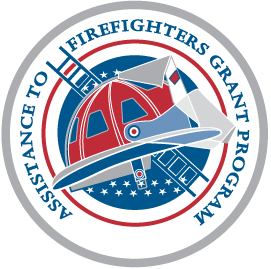
By Joseph Murray
In recent years, the fire service has seen unprecedented cost escalations for apparatus and equipment. As fire chiefs, we are all acutely aware of the challenges of maintaining a balanced budget and keeping expenses as low as possible during this economy.
For those of us who operate within a context of a greater municipal budget, balancing the needs of the fire department against the needs of other services creates additional challenges.
The American Rescue Plan grant funding has been a welcome lifeline for many fire departments over the past year; however, that funding is not continuous, and the manner in which allotted funds are used is ultimately decided by elected officials within one’s jurisdiction who may have other priorities than the fire department. The rapid escalation in costs coupled with municipalities generally recovering much more slowly from economic downturns than the private sector have led many fire chiefs to undertake the difficult challenge of choosing between important pieces of equipment to replace or, in even more challenged areas, not replacing anything at all.
Although they are not the answer to every challenge, grants can assist in relieving some of the financial burden of replacing apparatus and equipment that are past their useful lives. The Assistance to Firefighter Grants (AFG), which are awarded through the Department of Homeland Security (DHS), are especially important to the fire service as their scope only applies to the fire service, and any awarded funds cannot be used for any other competing service within your community. Ultimately, the decision to accept an award is up to elected officials, but in general, the required local match percentages are reasonable, and the benefits of accepting an AFG award typically far outweigh the risks.
The idea of applying for grants can be a daunting task for fire chiefs who may not have any prior experience with them. Often, grant notices can be long and chock full of legal responsibilities and language. It is important for fire chiefs to read through these notices and consult with those who may be able to offer valuable input on how a grant will function within your existing budgetary and reporting system.
Early dialogue with your community’s legal counsel and finance director can save you many headaches in the future. It may also assist in developing processes that may make grant application, procurement, and reporting much less complicated. While some grants are relatively simple to manage, others can be quite complicated, so using existing resources to assist you in the grant process is important. Fire chiefs who do not have adequate access to these resources can also research a number of vendors that provide grant assistance. Depending on the scope of your project and the requests, prices can range from relatively reasonable to quite expensive. It is important to understand the total scope of a project and what your expectations will be of the vendor prior to seeking out a contract.
For those fire chiefs who intend to apply and manage grants in-house, research and preparation should begin as soon as possible. For the major DHS grants, including AFG, Staffing for Adequate Fire and Emergency Response Grants (SAFER), and Fire Safety and Prevention, the priorities and guidance generally haven’t varied all that much from year to year. Preparation for the next announcement of those grants can begin immediately, even before the new notice of funding opportunity (NOFO) is released.
While you can prepare for these grants early, it is essential when a NOFO is released that you review it thoroughly to ensure changes were not made that could affect your application. While the DHS grants are generally an annual opportunity that opens around the same time each year, there are also other grant opportunities, whether federal, state, local, or private, that tend to pop up from time to time, often with limited notice. It is important for fire chiefs to always have a prepared project or program in the queue with some preliminary information.
As with most projects, the more time you spend preparing, the more ready you will be when the time comes to execute. Grants are no different. It is essential that fire chiefs have a solid understanding of what is needed within their department and how to accurately describe the justification of that need. Grant writing should be a team effort, as many grants require input from a variety of areas. It is important to include members with expertise in research, finance, operations, and writing skills. All four of these skills are essential for success, given most grant criteria.
Understanding the grant parameters your department is planning to apply for is of the utmost importance. Many grants are very specific to their intent, and any variation can automatically disqualify your application. The research component of grant preparation includes understanding the program guidance and funding priorities of the grants. While most fire chiefs are familiar with the annual DHS grants, many are not as familiar with the other local, state, and private sector grants. It is important to also prepare for these lesser-known grants. While every grant application is unique, there are some common elements that tend to be required in many of these less-familiar grants.
OVERVIEW OF THE PROJECT
A short overview of your project or program is generally required for all grant programs. The short overview can be considered the executive summary of your grant application and should include what you’re proposing in a few sentences. The short overview should be concise and should include the purpose of your project or request, the need you seek to address, or the problem you are attempting to solve. It should also include expected outcomes and how those outcomes will be verified. In many instances, it is also important to include why your project or request is important and a description of how your agency is best suited to use the requested funds.
DEFINE THE PROBLEM
Fire chiefs request funds to meet identified problems within their communities. It is important that the fire chief clearly articulates the context of the problem the community faces. More complex grants may require some level of scientific data or other scholarly references.
DESCRIPTION OF THE PROJECT
After you have defined the problem, the next step is to describe the project you are proposing. This could be something as simple as funding for equipment to perform a needed task or as complex as partnering with an academic or a scientific institution to perform a study related to firefighter performance. No matter the complexity of your project, you must be able to describe what the goals of your project are and what your expected outcomes will be. Your expected outcomes should be specific, realistic, and measurable. In your project description, discuss how you plan to achieve the expected outcomes and how those outcomes will affect the existing problem. Most grants also want an understanding of the timeline of the proposed project.
FINANCIAL RESOURCES
Since the fire chief will be requesting funding, it is essential that there is a clear understanding of what funding level is required to meet the goals of the organization. Grants can vary depending on the complexity of the application, so it is advisable to have a budget formatted appropriately that clearly indicates the various costs. In many cases, there may also be a cost justification statement that follows the budgetary requests that explains each of the requested costs, explaining why they are relevant, and that the requested funding is reasonable for the project. It is also important to demonstrate the fiscal solvency of your organization. While you are making a request for funds that your organization does not have, you also want to demonstrate that your organization has been responsible with the funds it does have.
DATA
The need for data cannot be emphasized enough. The more data you can reference related to either the problem or to the anticipated outcomes can help demonstrate the importance of your project. Having the ability to demonstrate that you can track data is also important for many grants. Most organizations investing in your fire department will want it to demonstrate the impact those funds have had on the community or your firefighters. It is essential that processes are put in place to capture these data.
ORGANIZATIONAL QUALIFICATIONS
For many grants and especially for those originating from the private or the nonprofit sector, it may be important to provide a statement describing your organization, your mission, and the services you provide. It is also important to discuss why your organization is well suited to receive and manage the funds. Evidence of prior experiences managing projects and budgets or reference letters may be required, so it is important that the fire chief obtain that documentation quickly. Having strong relationships with your local, state, and federal elected officials or other community stakeholders is key to acquiring these references.
Grants can be a great way to supplement a tight budget during challenging financial times. Given today’s unprecedented cost increases for fire apparatus and equipment, it is even more essential for fire chiefs to seek out opportunities for external funding. As with most projects, proper research and planning can make the process a lot easier.
JOSEPH MURRAY, Ph.D., is chief and emergency management coordinator for the Dearborn (MI) Fire Department.

